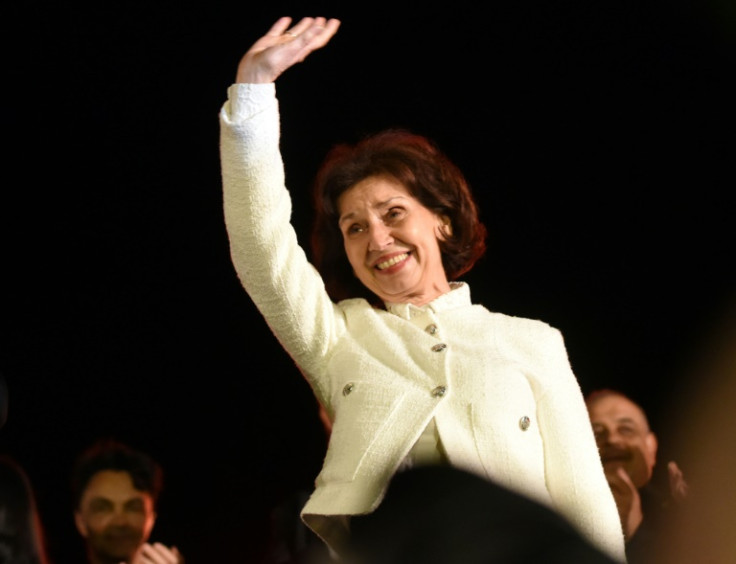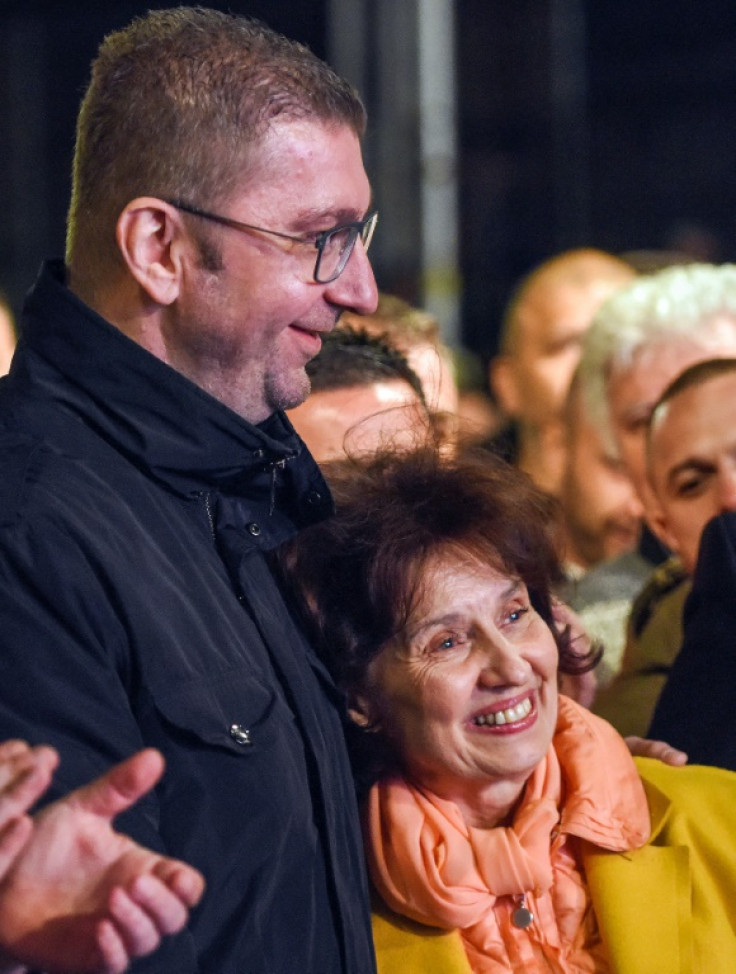
North Macedonia heads to the polls Wednesday for the first in a series of elections that could decide whether the diverse Balkan country will ever join the European Union.
The first round of its presidential elections comes amid a two-year standoff between the government and the opposition over how to deal with neighbouring Bulgaria blocking its path to EU membership.
Relations between Sofia and Skopje have been strained for years by bitter disputes over the two country's similar languages and history.
Sofia has refused to back the opening of accession talks between Skopje and the EU until North Macedonia recognises its tiny Bulgarian minority in the constitution.
President Stevo Pendarovski and the ruling centre-left Social Democrats (SDSM) are prepared to make the amendments but lack the numbers to win a parliamentary vote.
The opposition VMRO-DPMNE party refuses to budge, saying any constitutional changes can come after North Macedonia joins the EU, a stance the government says is unrealistic.
The first round of the presidential vote puts the two opposing views on the ballot, with Pendarovski in danger of being unseated by Gordana Siljanovska-Davkova, who is backed by the right-wing VMRO-DPMNE.
The long-time political rivals, who also faced off in the last presidential election in 2019, are the leading candidates in a crowded field of seven.
The second round run-off will be held on May 8, the same day as the country's parliamentary election.
Pendarovski and the SDSM have vowed to unlock the stalled talks with the EU and shepherd the constitutional changes through the parliament.
"The priority of the new parliament will be adopting the constitutional changes and I expect that process to start immediately after the elections," he said.
Siljanovska-Davkova and the VMRO-DPMNE said North Macedonia -- which already had to change its name in 2018 from Macedonia to settle a separate long-running dispute with Greece -- will not be pushed around on the issue.
"Only unity can push us forward... and make us feel proud," the retired law professor and former MP told a rally on Monday night.
Wednesday's vote will be closely watched as a barometer for the parliamentary elections, said analyst Ana Petruseva, head of the Macedonia branch of regional investigative reporting outlet BIRN.
"The presidential elections' first round will be a dress-rehearsal for the parliamentary elections on May 8 and reveal the major political parties' standings," she told AFP.
Opinion polls have suggested Pendarovski is heading for defeat.
Siljanovska-Davkova now leads in the polls with 26 percent support followed by Pendarovski on 16 percent.
The support of the five other candidates may be vital for the runoff, Petruseva added.
The five include Foreign Minister Bujar Osmani, supported by the ethnic Albanian DUI party -- a partner in the ruling coalition -- and Arben Taravari of the opposition ethnic Albanian coalition.
The DUI has offered its backing in the second round on condition that future presidents be elected by MPs, which it hopes would one day lead to an ethnic Albanian holding the position.
Albanians make up more than a quarter of the country's population of 1.8 million.
Pendarovski and Siljanovska-Davkova have dismissed the idea, saying it is more democratic for the head of state to be selected through a direct vote.
Ordinary voters, however, seem more interested in making ends meet.
"I hope that whoever wins will improve living standards and make a better future, especially for young people," civil servant Sanja Jovanovic-Damjanovska told AFP.









